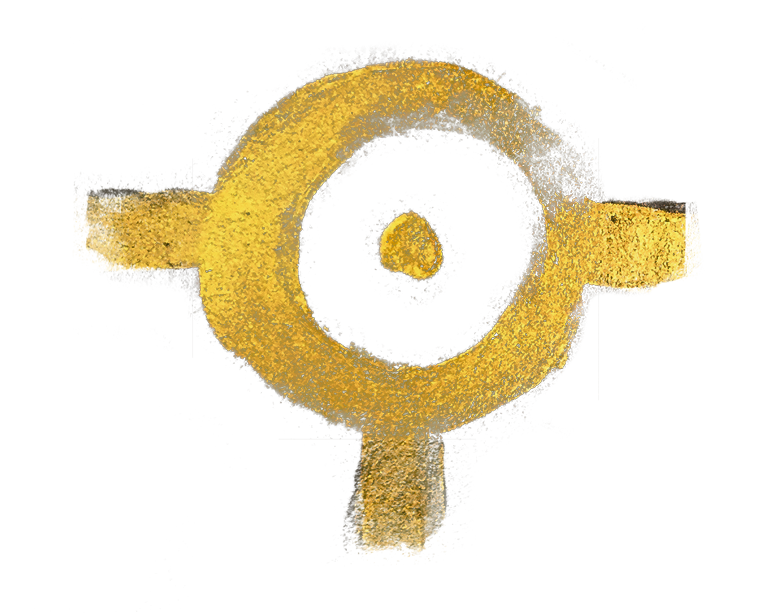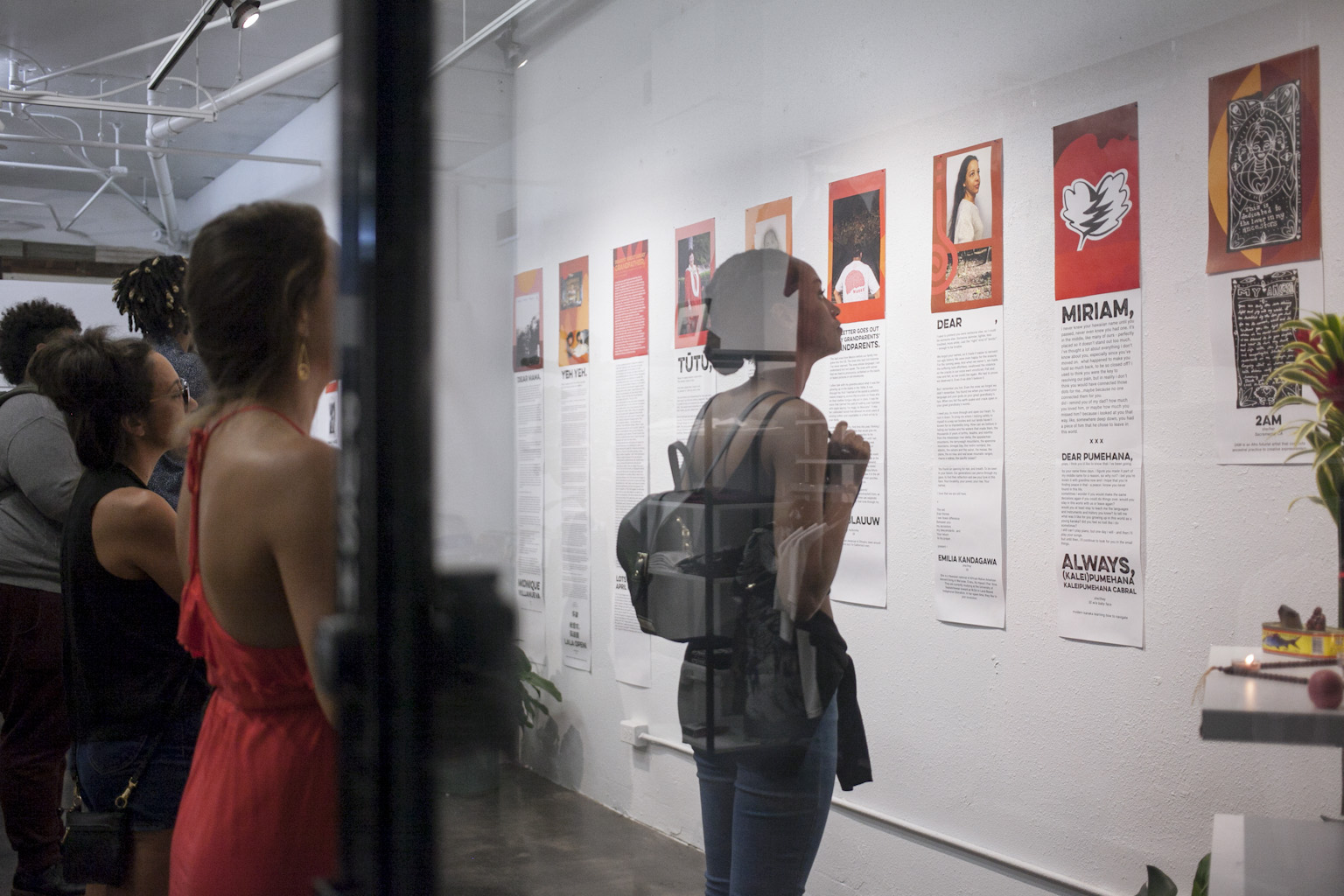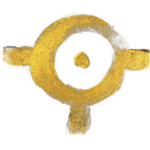Written by Daniel Ikejimba. Photography by Jared Perez and Lala Openi. Artwork by Openi.
I don’t normally like Valentine’s Day.
It just seems fake.
But when I first heard about Openi’s latest project, “Valentine’s to My Ancestors,” I was inspired — the idea of sending a valentine to an ancestor was refreshing, and I knew it was something I had to do. It’s frustrating to think that most people save expressions of love for a single day each year. I believe if you love someone it’s an every-day thing, but that’s another story. I never got to spend much time with my grandmother, so writing a letter to her feels more worthwhile than a cute note to someone I see all the time. What would I even say? How would I express my love for her? As a society, with everything constantly focused on what’s newest, the future… we don’t make time for our roots. Expressing our feelings to our ancestors is more rewarding than buying chocolates and roses. So I wrote a letter, and waited for the kine.
“When an elder dies, a library burns down…”
On February 2nd, Openi took over Honolulu Chinatown’s local-grown streetwear shop About the Goods to flip the script on Valentines Day and hold space for other people to write their own letters. There was free craft table, letters written by the full gamut of QTIPOC covering the walls, and a communal alter where folx were invited to #BYOF (bring your own fam, fotos, and flowers). Amidst the usual chaos and debauchery of Chinatown’s First Friday festivities, people were drawn in by the flowers, the candles, and the striking row of pink, orange, and red-framed photographs of ancestors on the wall. On this First Friday, we were drawn into a space where they couldn’t help but to quiet their mind, and read the letters, and really reflect on where we’ve come from. Our own experience and relationship to our ancestry. Interactive elements are a staple in the spaces Openi creates. 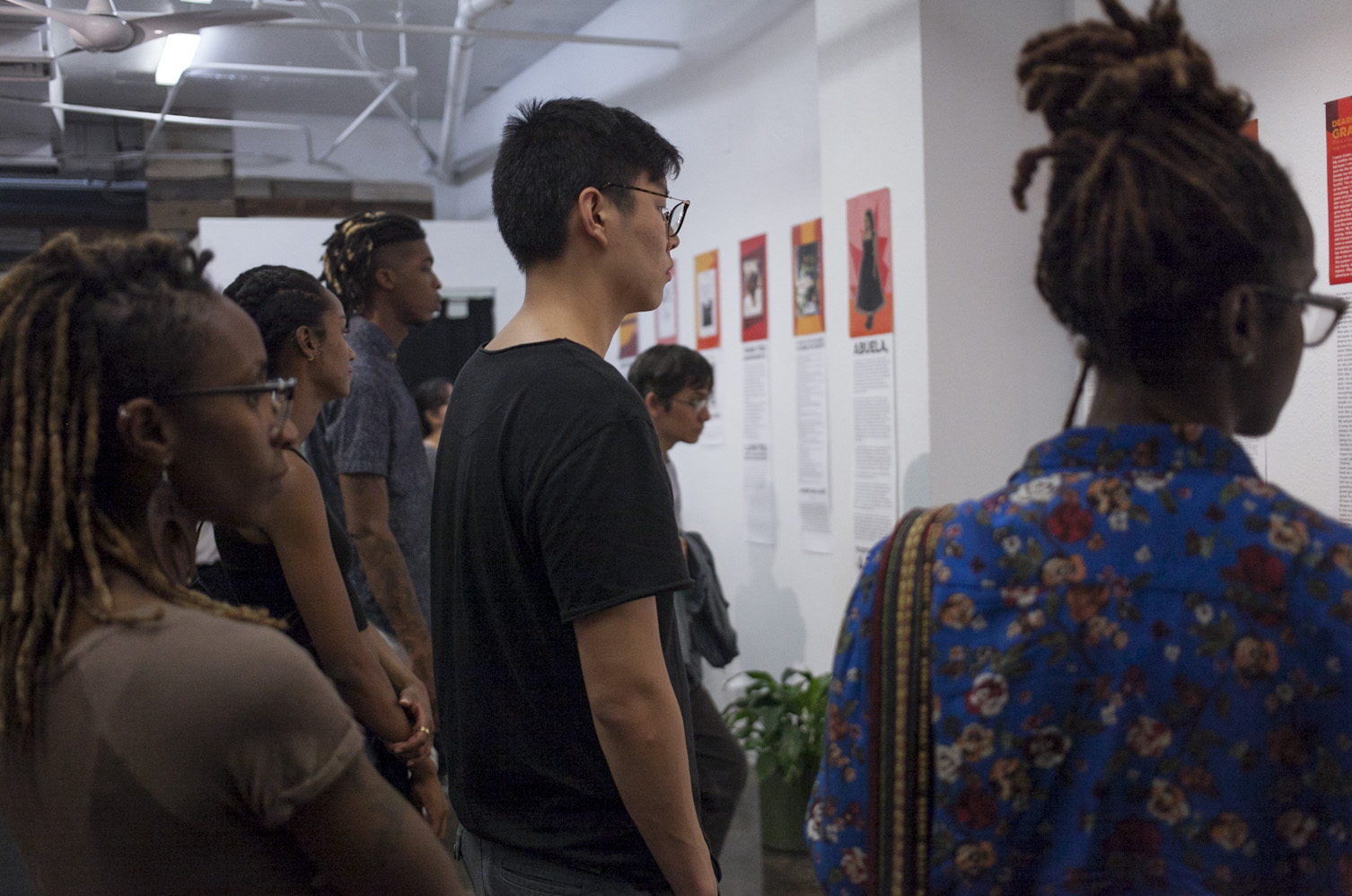
While this type of project and concept might be new to most, this sort of gathering is not uncommon for Openi, who’s spent the last 5+ years around SF, Oakland, and now Honolulu hosting shows and curating intentional spaces which are vulnerable in nature and encourage introspection and healing. Openi finds that bearing their soul to a room full of strangers to be liberating and as well as healing, because more often than not, people express that they can relate and feel affirmed enough to want to engage on their own healing journey.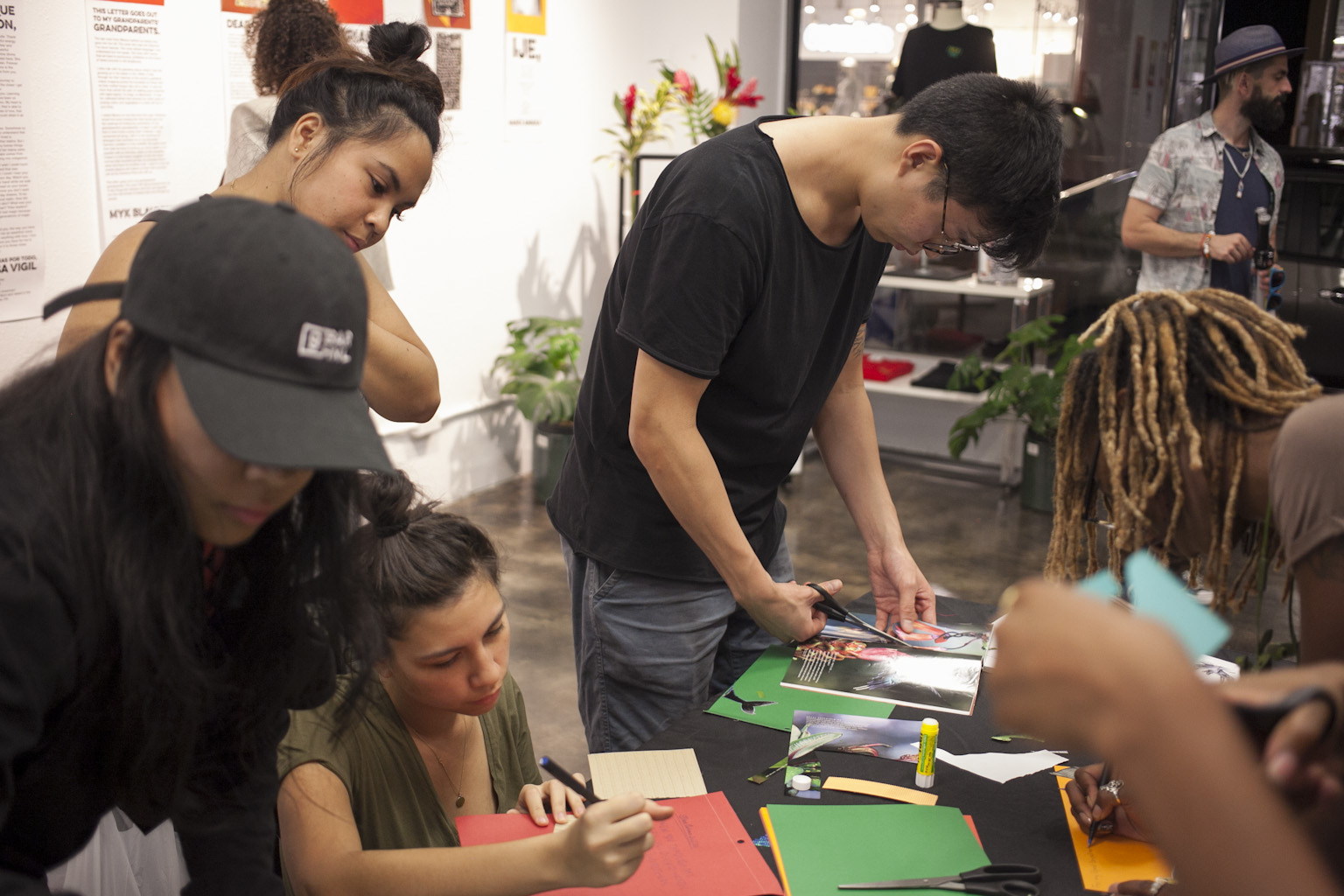
Valentines to My Ancestors is yet another project where Openi creates a safe space for the audience to interact with the art while providing a community building experience. It’s a project for people yearning to decolonize consumerist cultural practices, for indigenous peoples interested in uncovering or preserving their heritage (too often ‘lost’ to colonization), and for people who are simply tired of the boring old corporate holidaycandies-and-chocolate mess. While some First Friday events around Chinatown involve the arts, 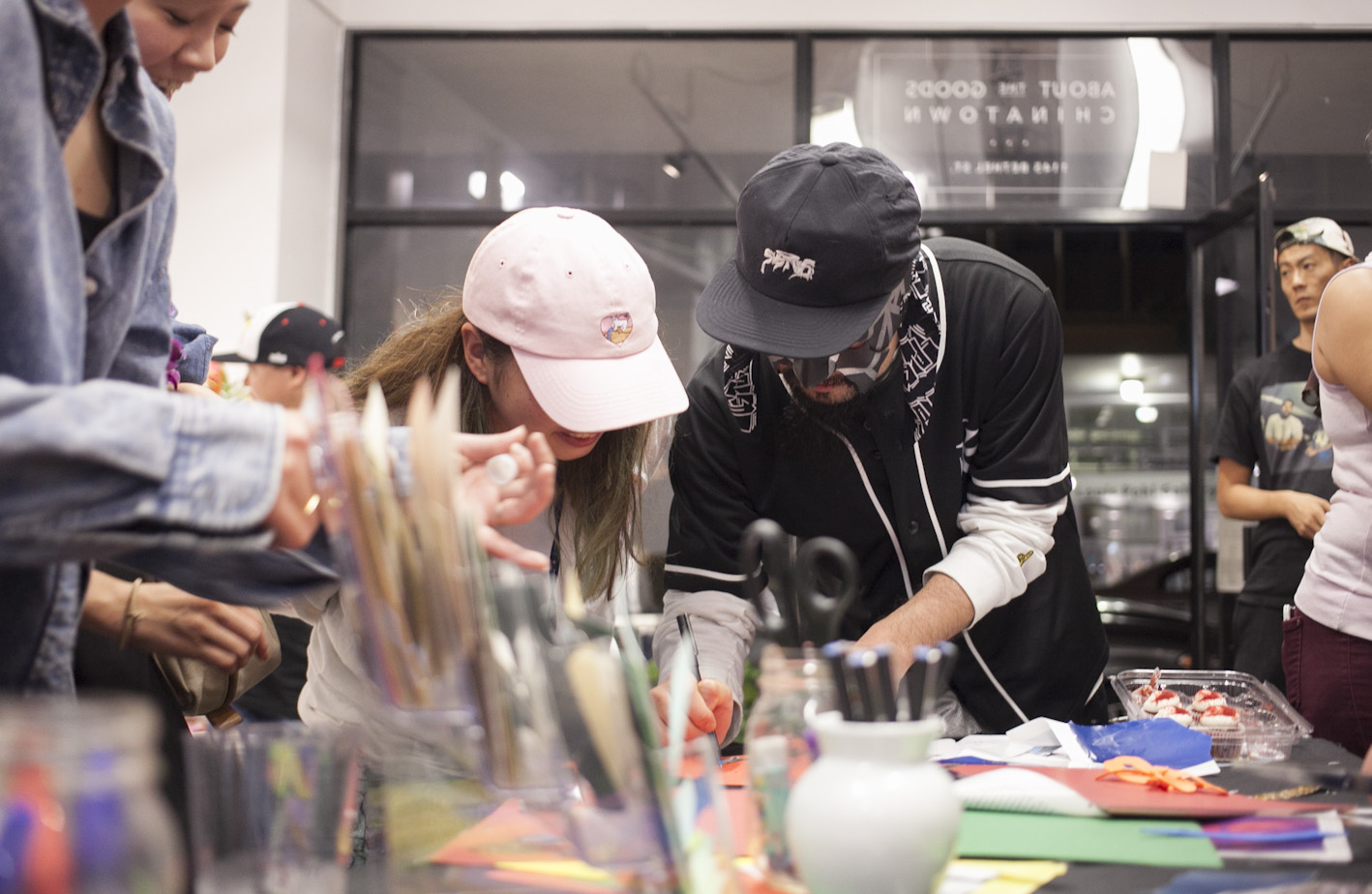
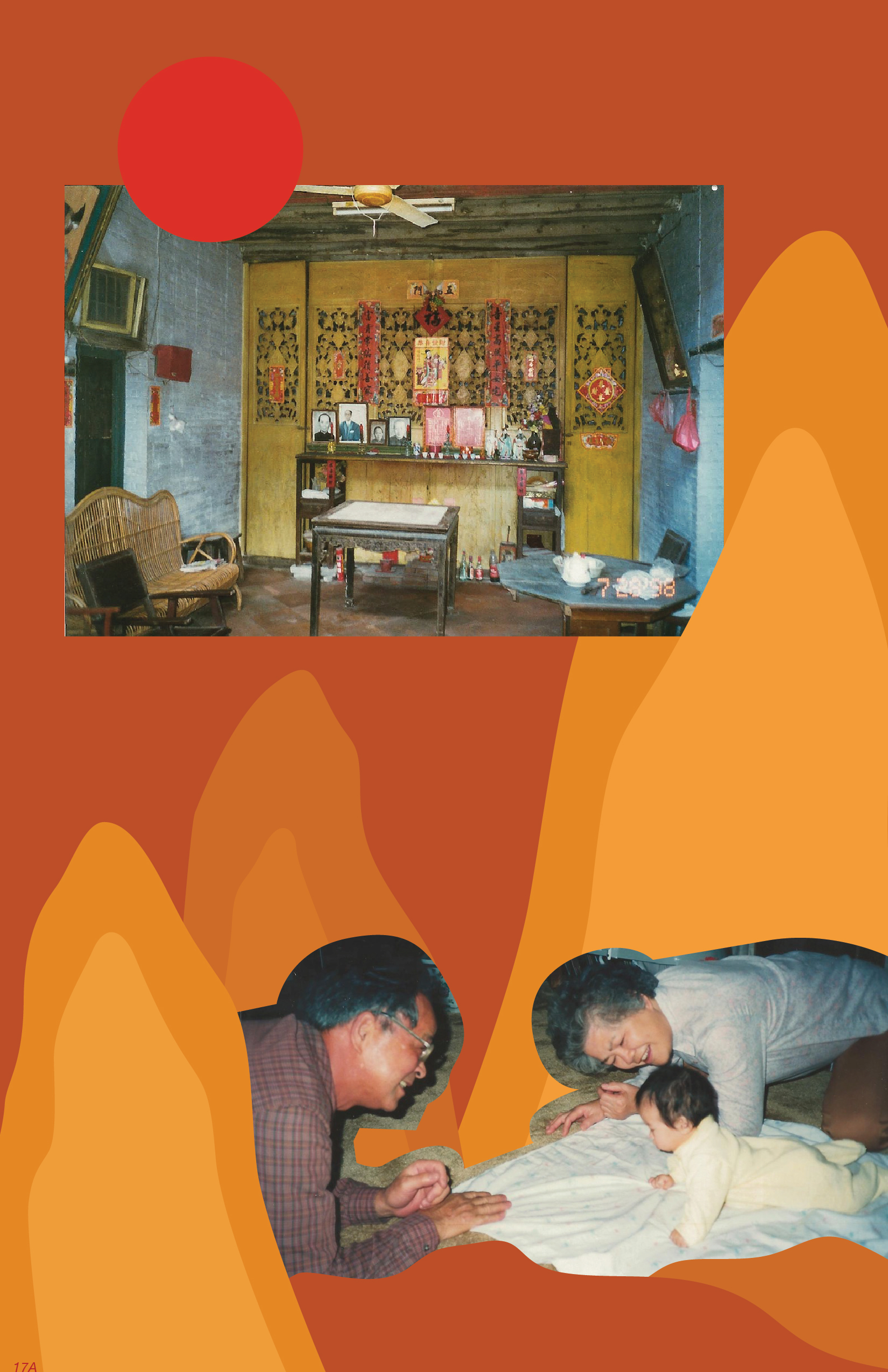
Q: What inspired this project?
A: When I found out my grandfather passed away, I was…sad. Not that we were very close, but he was still my Yehyeh. I was sad not only at his transition, but at the idea that I would never fully know his story, our story. The story about the place he grew up, what it was like to have three moms, what it felt like for him to escape the Japanese Occupation, how he felt about not being able to talk to his grandchildreen {who speak English, the tongue of Gāmsāan — the land where he and many other immigrants from Hong Kong sought new life (Gāmsāan is Cantonese for ‘Golden Mountain’, or California during the Gold Rush)} … I was in the middle of interviewing him for a film exploring our family story, but that got put on pause when his health started getting really bad. There was so much I still wanted to ask him, and now I’m left to unroot our family’s history through piecing together fragments of the picture from historical accounts, other peoples interviews, and whatever bits & pieces family members remember or were told. I know I’m lucky to know as much as I do, but there’s a sickly feeling that comes with knowing a part of your history and your ancestors way of life may soon be dieing – or might already have. Even the dialect of Cantonese my family speaks is the version brought over when we moved to San Francisco, five generations ago. When my cousin went back to visit Hong Kong, her friends laughed and told her she sounded like she was from the 1800’s. So that’s where the quote came from. When Yehyeh transitioned, I felt as though the library that held my family’s story was lost forever.
Q: What about your parents and other family members? Can’t you get this information on your family history and heritage from them?
A: I’ve spent so many years feeling like my Chinese Heritage was something as foreign to me as they make people who look like me seem, on TV. Like I said, we’ve been in The Bay for 5 generations, on my mom’s side. Embarrassingly, we used to call my dad’s side my ‘Chinese side’ —even though both my parents are ethnically Chinese. But, my dad is from Hong Kong, and my mom’s mom’s mom’s moms was born in The Bay. All that family history, the stories, the skills, the knowledge, is some obscure place where I, myself, feel foreign. As a kid growing up, as far as I was concerned, my culture was Bay culture. My mom doesn’t speak chinese. My dad knows some, but even he can’t have a full conversation with his parents. There are too many words he’s lost since he immigrated here at 6 years old. Both my grandmas (the only grandparents I have left), interestingly enough, don’t feel it very important to talk about the past, and always brush over it when I try to ask questions.
Q: Damn. Is there anything your grandmothers have told you, that gives some insight to where you came from?
A: When I was a munchkin, I spent all my time with them. But I was a lil baby so we didn’t tend to have many deep conversations, even with my mom’s mom who’s been in San Francisco all her life. I’ve heard a couple stories about how my mom and her siblings were as little kids, but not too much about my grandparents upbringing. They don’t really like to talk about it, I think because some of it was traumatic. As a child, my mom’s mom (Pau) and her family and was burned out of their house in San Francisco, in the middle of the night, for being Chinese. I can’t even imagine. All I’ve been able to gather from my Dad’s mom (Ma Ma) is that she’s from Guangdong, and had rice fields growing up. Now, I don’t get to spend much time with either of them, because I had to leave The Bay for health reasons. Recently though, as I’ve begun digging up my roots, I’m noticing how similar I am to my dad’s mom in ways I never noticed, even though we grew up in totally different worlds. But we have similar habits, humor, and sensibilities. This has really helped me learn and understand that even if i don’t know the details, the knowledge of my ancestors is in my blood.
Q: The ancestral connection is real! That’s good you’re tapping in. What makes you want to take on the task of such personal questions and stories into your work, and then in turn share them with the community, especially for this project?
A: I know there are others who have been blessed with the opportunity to get to know their elders and their history before it was too late. And still others who might never get to know. We all have a different relationship with our roots, and our history, but one thing is for sure: whatever our story, it is important, and worth documenting. With Valentine’s Day approaching, I thought to write my Yehyeh a letter. A Valentine. Around the same time, I kept running into conversations about ancestors, and how we’re constantly in communication with them, whether we know it or not. They are guiding us through muscle memory, through carried experiences, ancestral knowledge. That connection exists, so that we might heal our ancestral traumas. As I talked to friends and people I’d met, they remarked that they themselves had letters they needed to write to an ancestor. I formed the idea of Valentines to My Ancestors to hold space for folx to ask their questions, reflect on their stories, and write their letters. Energy is currency, so the more energy we collect around this, the stronger the return. I like to think of this as a collective message in a bottle to our loved ones, roots, distant relatives, in order to say what we need to. That we can start to heal, through speaking to our ancestors. A lot of people were excited at the idea, but found it harder than they thought to actually write the letter. That’s okay too, because healing is hard. It takes time, and can’t be forced. I think communicating with yourself is always good, and communicating with our ancestors is like taking it a step further. There’s so much going on in the world. The underlying theme is being vulnerable to connect, and connecting to heal.
Q: How would you compare your project/event to Valentine’s Day, in regards to love?
A: This gathering challenges the traditional tactics of how we express love and to whom— on a day commonly associated with more materialistic gestures. It channels our love and energy towards reconnecting and nurturing our roots as opposed to focusing it on fleeting commercial holiday photo-ops.
Q: Needed. Okay. I gotta ask: What’s the deal with the E&J bottle?
A: I’ve been waiting for someone to ask me this, haha. After my Yehyeh transitioned, I took it upon myself to make him an altar to pay my respects. Nobody in my family does this, but I knew that it would be good to leave him something to enjoy in the afterlife. I remembered him drinking Remy Martin when I was a kid, so I decided to try and find that. I scoured all the liquor stores out here but apparently nobody drinks that in Hawaii. So, I opted for E&J as its the closest thing I could find (and afford). When I told my dad this, he laughed and said my grandpa used to re-fill his Remy bottle with E&J, haha. So, when I was creating the branding I left it in because alcohol is a common offering, but also as a little secret nod to the idea that no matter how disconnected we might feel from our ancestors, there are some things about them that we don’t need to be explicitly taught or told. We just know.
Valentines to My Ancestors is a way to express our love for those who may not hear it enough, if at all. I definitely hope to see more events/gatherings/projects like this; and that Openi’s quest for ancestral connection inspires new and empowering ways to focus our time on.
If you want to check out my valentine, or ‘add your message to the bottle’ and make a Valentine’s letter to your ancestor: go to http://www.openi.in/work/v2ma/ (Which is also where you can keep up with Openi’s past work, and latest projects.)
About the Openi:
Lala Openi is a mixed-media artist & designer learning self actualization through colloquial metamorphism, currently residing in Honolulu Chinatown. 5th-generation San Francisco Bay-bred ABC (“American-Born Chinese”), Openi utilizes digital, tactile, and auditory art forms to activate narratives of identity and engage in introspective conversation on the ever-shifting cultures of both self and space. Through event curation, installations, film screenings, think pieces and art residencies throughout the Bay Area and Honolulu, Openi’s work as a solo artist is deeply rooted in their participation as a co-founder and member of acclaimed Bay Area- and ‘Āina-based collectives Veuxdo Child Films, The House of Malico, The Contingency, and Them Hellas. Follow up with Openi and on social media and their website.
About the author:
Daniel Ikejimba is a sexy ass nerd living in Honolulu, Chinatown. Nigerian-American graduate student and pupil of cognitive health & functioning, and human behavior.
